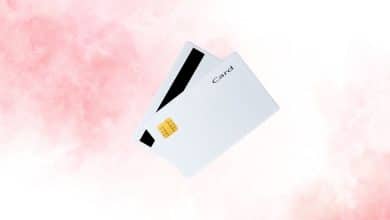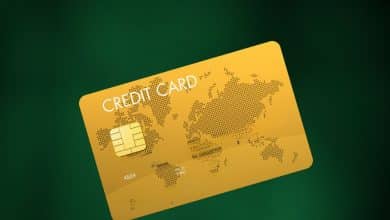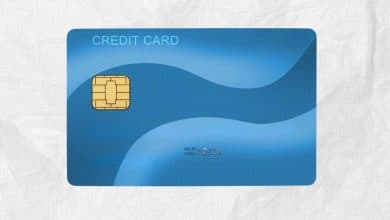Steps to Control Spending and Enjoy Credit Card Perks
Credit cards are more than just a way to pay for things. They offer rewards and benefits that can save you money. In Nigeria, cards like the Honest Card give you up to 3% cashback and extra security features.
But, if you’re not careful, credit cards can lead to overspending. This can be a problem if you can’t stick to a budget. It’s important to manage your spending wisely to avoid these issues.
To control your spending and enjoy credit card perks, you need to be aware and plan your budget. It’s key to follow personal finance tips that help you spend wisely. This way, you can make the most of credit card benefits while keeping your finances balanced.
With the Honest Card, you can apply easily in just five minutes. Plus, there’s 24/7 customer support through WhatsApp. This makes it simple to start enjoying the benefits of credit cards while managing your money well.
Understanding Credit Card Benefits
Credit cards are not just for buying things. They also come with benefits that help your money go further. These perks make your spending more valuable and efficient.
What Makes Credit Cards Valuable
Credit cards are valuable for many reasons. They help you build a good credit score. This score can lead to better loan terms in the future. It’s especially useful for big purchases like homes or cars.
They also let you earn rewards. These rewards can be cash back or points on what you buy. This means you get to save money and enjoy extra benefits.
Types of Rewards and Perks
Credit card rewards vary to fit different spending styles. Here are some common ones:
- Cash Back: Some cards give rebates of up to 8% on certain items. Others offer 2% cash back on everything you buy.
- Travel Points: Cards for travelers earn one mile per dollar spent. They often come with big sign-up bonuses to help pay for flights.
- Exclusive Discounts: Many brands offer special deals to cardholders. These deals can save you money and enhance your shopping experience.
Also, networks like Visa and Mastercard provide extra protection. They cover you against unauthorized purchases. This lets you shop without worry, knowing you’re protected from fraud.
The Importance of Financial Discipline
Starting with financial discipline is key to good personal finance. It shapes how we spend money, helping us make smart choices. This way, we avoid debt and control our financial future better.
How Discipline Affects Spending Habits
Financial discipline is vital for a balanced budget. It helps us make choices that fit our budget. Setting clear financial goals helps us track our money better.
Experts say we should save three to six months’ worth of expenses. This fund acts as a safety net for unexpected costs.
The Role of Credit in Personal Finance
Credit is a powerful tool in managing finances. But, it must be handled carefully to avoid problems. High credit use can hurt your score.
Try to pay off credit card balances each month. This avoids debt and lets you enjoy credit card perks.
Steps to Control Spending and Enjoy Credit Card Perks
Creating a solid financial plan is key for controlling spending and getting the most from credit cards. Good budgeting helps manage expenses. This way, people can keep their spending balanced each month.
Setting a Monthly Budget
Having a monthly budget helps control credit card use. It involves listing income and expenses clearly. This makes it easier to see where money goes.
It’s important to check and update the budget often. This keeps finances in order, even when income or expenses change.
Understanding Variable vs. Fixed Expenses
Knowing the difference between fixed and variable expenses is important. Fixed expenses stay the same, like rent or loan payments. Variable expenses change, such as groceries or fun activities.
By dividing these into categories, you can plan better. This helps focus on necessary expenses and cut down on extra spending.
Identifying Necessary Versus Impulse Purchases
It’s important to know the difference between needs and wants. Studies show that 40% to 80% of what we buy is on impulse. This shows we need better ways to spend our money wisely.
The 72-Hour Rule Explained
The 72-hour rule helps you think before buying. Waiting 72 hours lets you decide if you really need something. It helps you see if you’re buying out of fear or boredom.
This rule can help you save money. It makes you think twice before buying.
Techniques for Preventing Impulse Buying
There are ways to stop buying on impulse. Here are some good strategies:
- Create a wish list: Write down what you want. This helps you focus and see if it’s worth the money.
- Set spending limits: Have a budget. This stops you from spending too much.
- Identify emotional triggers: Know what makes you buy things on impulse. It could be ads or social media.
- Embrace SMART savings goals: Make specific, achievable savings goals. This helps you avoid unnecessary spending.
Using these tips can help you avoid buying things you don’t need. It helps you save money for things that really matter. This improves your financial health.
Tracking Your Expenses Regularly
Keeping track of your spending is key to managing your money well. It helps you see where your money goes and helps you stick to a budget. There are many ways to track your spending, helping you make smart money choices.
How to Monitor Spending Effectively
To track your spending well, try different methods:
- Pencil and Paper: Writing down what you spend each day is simple and effective.
- Budgeting Apps: There are many apps that help you track your spending in real-time.
- Spreadsheets: Spreadsheets can show your spending clearly, helping you understand your habits.
Using these methods can help you spot where you can save more money. This can lead to big changes in your budget.
Using Budgeting Tools and Apps
Today, using budgeting tools is a big help in managing your money. These tools let you set goals, track spending, and see your progress. They make tracking your money easy and fun.
Using these tools regularly helps you stay on track with your financial goals. This could be saving for retirement or building an emergency fund that covers three to six months of expenses.
Setting Spending Limits on Credit Cards
Setting spending limits on credit cards is key to managing them well. It helps avoid overspending and builds financial discipline. You can set these limits by using alerts and treating credit cards like debit cards. This approach supports better budgeting.
Creating Alerts for Spending Caps
Using alerts is a smart way to keep spending in check. Many credit card companies, like Capital One, send instant messages when you hit your spending limit. These alerts remind you to stay within your budget.
By regularly checking your credit card transactions, you can understand your spending better. This helps you meet your financial goals.
Using Credit Cards Like Debit Cards
Spending only what you can afford is a good way to manage credit cards. It encourages saving and responsible spending. Setting personal spending limits helps you control your spending better.
This approach prevents debt and improves your credit score over time. It’s a smart way to manage your finances.
Using Rewards Wisely
Using credit card rewards can really help your finances. By focusing on cash back and points, you can turn your spending into big gains. It’s all about planning smart.
Maximizing Cash Back and Point Redemption
To get the most from rewards, match your spending with the best categories. Many cards offer more cash back on certain purchases, like:
- 3% cash back on dining
- 5% cash back on groceries
- 1% on all other purchases
Knowing these categories helps you shop smarter. Also, grab promotional offers to boost your rewards. Don’t forget to switch to new categories each quarter for the best benefits.
Avoiding Debt for the Sake of Rewards
The temptation of rewards can be strong, but don’t let it lead to debt. Stay disciplined with your spending and avoid buying just for rewards. Use your card wisely to benefit your finances, not to rack up debt.
Stick to your budget, keep balances low, and pay off purchases quickly. This way, you avoid interest charges and keep your finances healthy.
Avoiding Store Credit Cards
Store credit cards seem appealing with their discounts and rewards. But, they often hide hidden costs. It’s key to understand these risks for good credit management.
Understanding the Risks of Store Cards
Store credit cards usually have higher interest rates than regular cards. The average rate is about 24.40%. Some, like Walmart’s, can go up to 26.99%. This can cancel out any savings from discounts.
Missing a payment can hurt your credit report in just 30 days. This makes it hard to manage finances later.
Many retailers give out store credit cards without checking credit scores. This can lead to debt for those who can’t afford it. Also, having many store cards can lower your credit score. This makes it tough to get loans or other credit in the future.
Alternatives to Store Credit Offers
Looking at other options can help manage credit better. General rewards credit cards offer benefits without high-interest rates. Cards like the American Express card reward users for daily purchases, earning thousands in rewards each year.
Using credit wisely can help build your credit history and enjoy perks. Picking the right card with good terms can improve your financial health. This way, you avoid the problems of store credit cards.
Paying Your Balance in Full
Paying your credit card balance in full each month has many benefits. It helps avoid interest charges and boosts your financial discipline. By paying on time, you keep your credit score healthy and avoid penalties.
The Benefits of Risk Mitigation
By paying off your balance, you lower your debt risk. Keeping your credit utilization under 30% is key. This helps improve your credit score and leads to better rewards from credit card companies.
It also cuts down on late fees and high interest rates. These can cause a lot of financial stress.
How to Avoid Interest Charges
To dodge interest charges, pay your balance in full before the due date. This keeps your credit history positive. It’s important for reaching your financial goals and avoiding overspending.
Using credit cards wisely can help you manage your budget. It encourages smart spending habits.
Reviewing Your Credit Card Statements
Looking over your credit card statements is important. It helps spot fraud and gives you a clear view of your spending. This way, you can make sure all charges are correct and plan your spending better.
Detecting Fraudulent Transactions
It’s key to watch out for fraud to keep your money safe. Your statements show all payments and interest. If you see something odd, tell your credit card company right away.
This can stop more trouble and help fix any issues fast.
Analyzing Spending Patterns
Checking your statements helps you understand your spending. You can see what you really need versus what you don’t. This helps you budget better and make smarter choices.
Also, looking at interest and fees helps you plan your finances better.
Conclusion
Learning to manage credit cards is key for those wanting to get the most out of them. It’s about budgeting, tracking spending, and knowing your habits. With over 7.753 billion cards worldwide, using them wisely can bring big rewards.
It’s important to use credit card perks like cashback and interest-free periods. Paying on time helps avoid debt. This way, you can enjoy the benefits and save money for the future. Always aim to pay your balance in full each month.
Credit cards are getting more popular, and knowing how to use them right can lead to financial success. Using them wisely turns potential problems into chances for growth. This builds a better relationship with money and spending.
FAQ
What are the key benefits of using credit cards?
How can I avoid overspending on my credit card?
What is the 72-hour rule and how does it help with spending?
How can I effectively track my expenses?
Why should I treat my credit card like a debit card?
What should I do if I notice unauthorized transactions on my credit card statement?
Are store credit cards worth considering?
How can I maximize my credit card rewards?
What are the advantages of paying off my credit card balance in full?
What role does financial discipline play in credit card use?
Published on: 29 de August de 2024

Abiade Martin
Abiade Martin, author of WallStreetBusiness.blog, is a mathematics graduate with a specialization in financial markets. Known for his love of pets and his passion for sharing knowledge, Abiade created the site to provide valuable insights into the complexities of the financial world. His approachable style and dedication to helping others make informed financial decisions make his work accessible to all, whether they're new to finance or seasoned investors.






